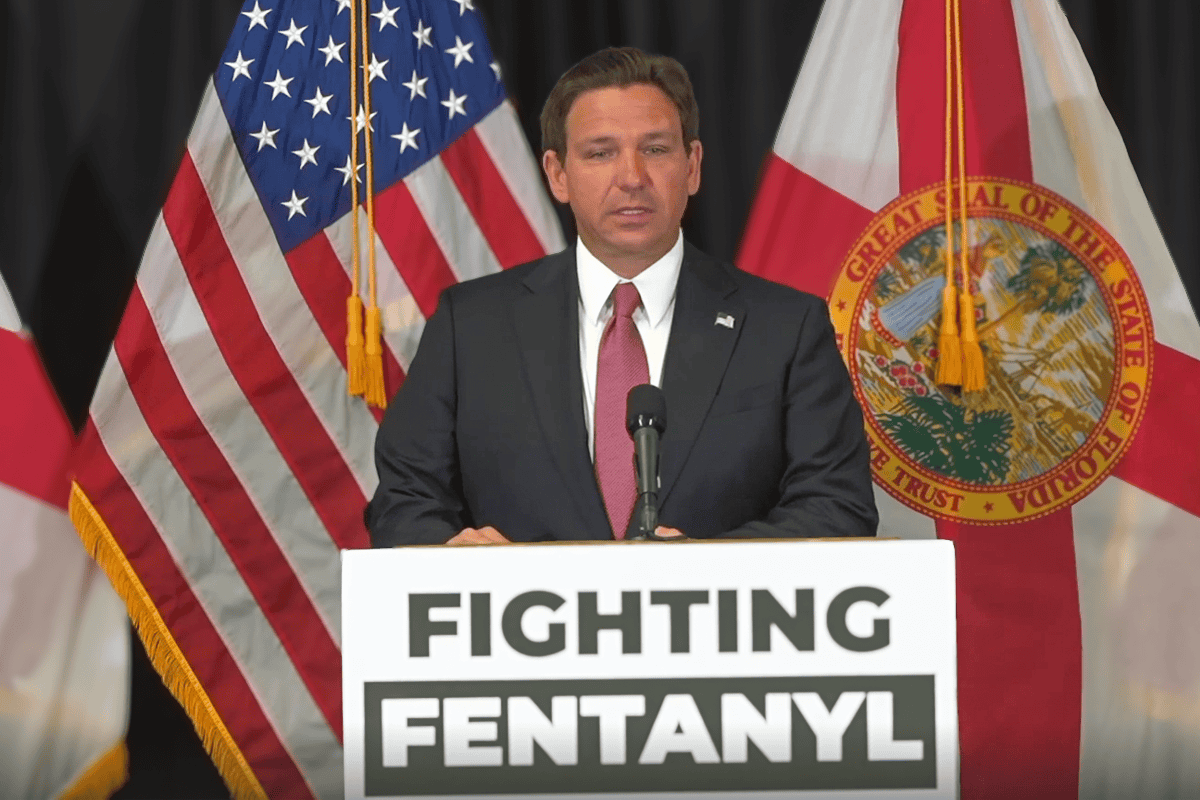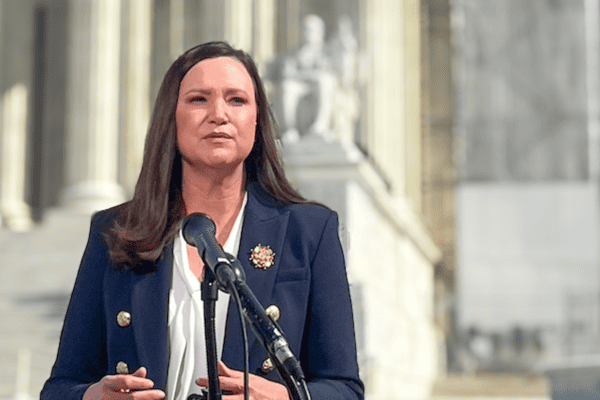DeSantis signs legislation guarding first responders from fentanyl exposure, raising awareness

SAMFORD, Fla. – Gov. Ron DeSantis signed legislation on Monday cracking down on the intentional exposure of fentanyl around first responders.
He singed an additional bill bringing awareness to overdoses primarily caused by drugs like fentanyl.
The first bill, SB 718, by Sen. Jay Collins, R-Tampa, establishes that it’s a second degree felony for any adult who, in the course of unlawfully possessing fentanyl, recklessly exposes a first responder to such substances that results in an overdose or serious bodily injury of the first responder.
The bill also amends state statute to provide immunity from arrest and prosecution for a person who acting in good faith, seeks medical assistance because he or she, or another person is experiencing an alcohol or drug related overdose.
The second bill, HB 89, was sponsored by Rep. Rachel Plakon, R-Lake Mary. Sen. Jason Brodeur, R-Lake Mary, sponsored its Senate version.
The legislation designated June 6 as Revive Awareness Day and encourages the Florida Department of Health to host events and raise awareness of the dangers of opioid overdoses and the safe use of opioid counter-actants.
DeSantis explained during a press conference how fentanyl exposure is extremely high as drugs continue to flow across the United States’ southern border.
“We have been setting records as a country from the amount of opioid overdose deaths, driven a lot of it by the fentanyl coming across the souther border,” he said. “We have over 100,000 Americans every year are now dying because of these drug overdoses fueled by the fentanyl crisis.”
He added how Florida has done its part to help states like Texas combat the drug flow from Mexico by sending over Florida’s national guard and law enforcement.
“You have situations where when law enforcement personnel are responding to these situations that fentanyl may be involved in, they really are putting themselves at risk because it’s not like they have to start popping pills to be effected by this,” he explained.
The legislation defines first responders to include an emergency medical technician, a paramedic, a firefighter, a correctional officer, a correctional probation officer and a state or local law enforcement officer, who is acting in his or her official capacity.
Additionally, DeSantis announced that the state will be expanding the CORE network from the 12 ongoing counties it is currently set up in, to 17 new ones.
The network was established to combat opioid overdoses in various communities across Florida.
Florida Surgeon General Joseph Ladapo congratulated and thanked the legislature and governor for passing and singing the legislation combatting fentanyl, as well as expanding the CORE network.
“When we first talked about the [CORE] program […] a while ago in the governor’s office and just expanding it to the 12 that it currently exists in, one of the things we talked about was the fact that it has a lot of common sense elements,” he said.
“A lot of people, most people, in fact, who are addicted to a lot opioids or some other medication, they don’t want to be in that state. They want to be out of addiction,” he explained. “But addiction is a powerful dragon.”
Ladapo pointed to the many benefits of CORE and how it assists people in their fight against addictions.
Seminole County Sheriff Dennis Lemma highlighted how the first responder legislation would help protect law enforcement and those putting their lives on the line to protect and help Floridians.
He also thanked the governor for the all the work that has been done to combat opioid overdoses and fentanyl exposure in the state.
“This is why people are leaving their states, moving to Florida, to follow leadership like Governor Ron DeSantis,” he said.
“As a result of that work in the last few years, the governor has signed into law bills that simply do not exist in other areas of the country,” he added.
He explained that arresting drug dealers does in fact make a “significant dent” when it comes to holding people accountable and protecting the community from drug exposure.
The family of the overdose victim who Revive Awareness Day was named after also spoke at the press conference, highlighting how further opioid education and and knowledge will help save lives.
The first responder bill is set to go into effect on October 1. The awareness legislation went into effect upon becoming law.



